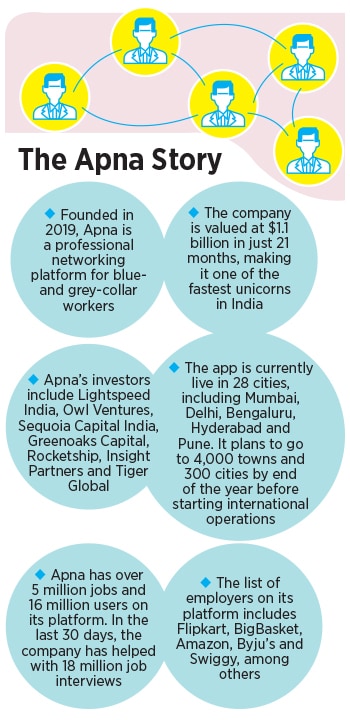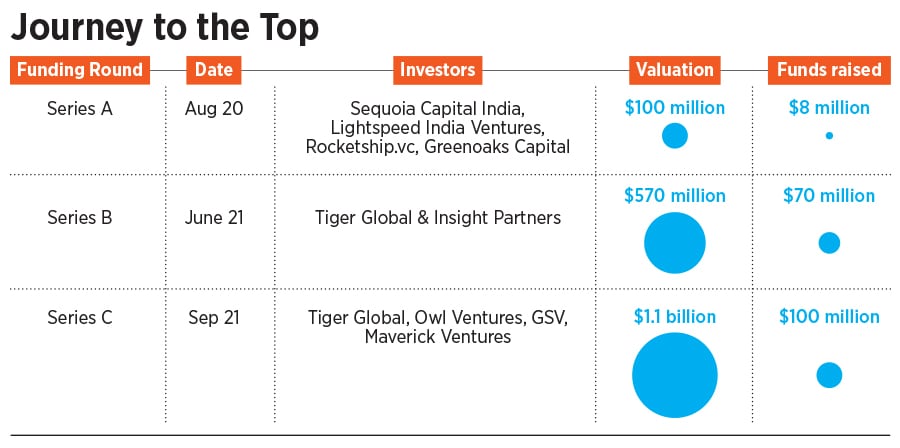
How apna became one of India's fastest unicorns with almost zero annual revenue
The two-year-old professional networking platform for blue- and grey-collar workers raised $100 million in a Series C round in September. The company plans to use the funds for global expansion and to scale up its skill tech platform
 Nirmit Parikh, founder, apna
Nirmit Parikh, founder, apna
In the land of unicorns, there is a new one now. And it’s one of the fastest ever. On September 15, Bengaluru-headquartered apna became a unicorn after the company raised $100 million in Series C funding led by Tiger Global, at a total valuation of $1.1 billion. apna’s latest round of funding is the third in 13 months, catapulting the company into India’s 27th unicorn of 2021.
It is also among the shortest time that an Indian company has taken to become a unicorn. apna achieved the feat in 21 months since it was founded. The two-year-old professional networking platform for blue- and grey-collar workers had earlier raised $70 million in a funding round led by US-based investors Insight Partners and Tiger Global on June 16, valuing the company at $570 million. The latest round of funding saw companies, including Owl Ventures, Insight Partners, Sequoia Capital India, Maverick Ventures, and GSV Ventures, invest in apna.
“For me, valuations are directional markers of success,” says Nirmit Parikh, the CEO and founder of apna. “We don't want to get away from our goal. When you combine a deep social purpose to a robust business model, it is fostering a lot of investor confidence.”
apna, the app that Parikh founded in 2019 is currently live in 28 cities, including Mumbai, Delhi, Bengaluru, Hyderabad, and Pune, among others. The platform has over 5 million jobs and 16 million users on its platform. Every month, the platform helps facilitate over 15 million interviews, and the list of employers on its platform includes Flipkart, BigBasket, Amazon, Byju’s, and Swiggy, among others.
apna essentially helps first-time internet users access professional opportunities, collaborate with others, gain new skills, and create communities that can help motivate them and find jobs. That includes communities for professionals like beauticians, carpenters, painters, and telemarketers, among others. Once on the platform, job seekers enter their personal information, which is made into a virtual business card that’s then passed on to potential employers. On the apna app, the company claims that a hiring process is completed in less than 48 hours with candidates directly connecting with recruiters.










